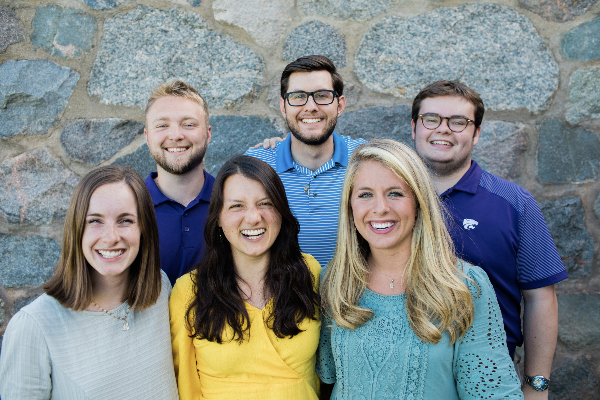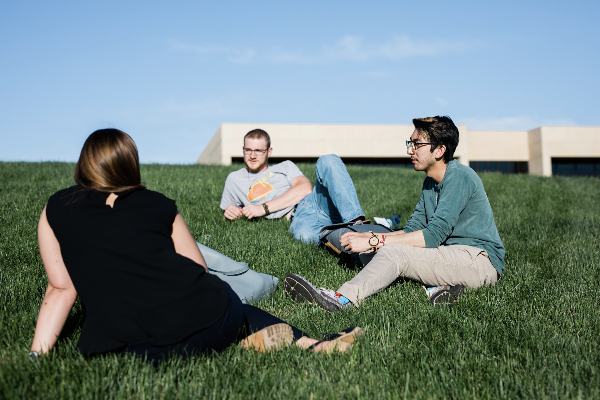We know there is a difference between friendships. They are not all created equal. Certainly, we have some friends. Most everyone does. But there are friends, and there are friends. And too few people know the difference.
I’ve taught college students for thirty years. I watch them closely and lend them a hand. They’re anxious, and they really try to navigate the friendship thing. And often it’s mess.
The fear of being alone or isolated is powerful. It drives us to seek connection. But often the connections we make end up very disappointing, or worse. What does it take to overcome isolation and really to connect with other people?
Here we come face to face with ourselves and with the deepest aspects of being human. The reality is that we are made for more: more than we realize, more than we’re being offered, more than we know how to do.
Lies and deception all around us make relationship seem easier than it is and pull us away from the path to deeper relationship. Connect by social media. Hang out. Hook up. Just follow your heart. Do whatever.
But we feel there should be something more. Some get serious, and look for more, and even think they’ve found it, only to find that it is more elusive than it seemed.
True friendship is possible — the friendship that stands out from the others, the one where our heart really finds a home, in which we can rest, and come alive. God designed us for such friendships, and he wants to give us the grace to forge them. We need to ask for that grace, and we need to our part.

A key aspect of doing our part is making distinctions. There are different kinds of friendships. Aristotle famously distinguishes between three kinds: friendship of pleasure, friendship of utility and friendship of virtue. Friends of pleasure enjoy spending time together; friends of utility relate primarily by helping one another in various ways.
What these two kinds have in common is that they are limited. The friends’ knowledge of one another is not deep. Further, these relationships do not demand a real other-centered attitude. Now good people can and do have healthy relationships of this kind, and they enact them with integrity. But such friendships can also function as a distraction — if we consistently relate to people on just this level. And worse, these relationships can become toxic, leading us places we should not go.
The third kind is different. Significantly different. Here two people really know one another and really care. It sounds so simple. But really to know and to be known, and at the same time to love and be loved, for who one really is: this is a masterpiece. This is to come alive and to move on another plane — of deep connection, and communion. This is what banishes loneliness, and fulfills the heart, and draws us to become our better selves.

Let’s take Aristotle’s division and use it to make four helpful bins in which to categorize our friendships.
1. Not just limited, but negative.
These are friendships of pleasure or utility that really have no place in our life. It’s one thing for a relationship to be on the shallow side; it’s another for it be shallow, with a rip current that pulls us into dangerous waters. Relationships like this need to be recognized for what they are, and perhaps set aside altogether.
2. Limited, and not growing.
These are friendships of pleasure or utility that have a real place in our life. They are what they are, and they’re not what they’re not. Perhaps in different circumstances this relationship could grow. Here and now there is no reasonable expectation for that — whether because of external life conditions, or personal issues of one or both of us. But there is no reason this friendship shouldn’t remain part of our life. Sometimes going deeper is just not going to happen and that’s okay.
3. Limited, with growth potential.
These are friendships of pleasure or utility that show promise for more. Virtuous friendships, or what we can call ‘true friendships,’ must start somewhere. Some of our not-deep friendships might be not-yet-deep friendships. Discerning which friends are in this category is one of the most important and consequential challenges we face as persons — especially in the young adult years. The more we know about the nature of true friendship, the more we will be in position to make this discernment.
4. Going into the deep.
True friends are always going into the deep. Indeed, the richness of their relationship adds a real ‘depth’ to everything they do. They are pursuing a truly good life together. They are moving at a level that too many of us have not yet imagined. Or, perhaps we have entered into this path with a small number of people. Such in any case can be our goal and our prayer.
So what can we do now? We can take stock. We should begin with self-examination: am I the kind of person that is capable of true friendship? This question involves more than we might think. Next, we can use the above categories to make a realistic assessment of where our relationships stand now, with a view to where we go from here.
This is never about being judgmental. It’s about learning to exercise good judgment. Friendship of any kind should be rooted in the truth: the truth about each of us as individuals and the truth about human life.
The great medieval theologian St. Aelred has inspiring and practical words for us about the deeper friendship:
“Since a friend is the partner of your soul, to whose spirit you join and link your own and … to whom you commit yourself as to another self … surely you must first choose, then test, and finally admit someone considered right for such a trust.”
True friendship, like a good human life, is an arduous good: something achieved by prayer and intentional, disciplined cultivation. And this usually with a small number of people. At the heart of the mission of FOCUS is forming people to know what friendship is, how to discern it, and how to forge it. What could be more important in human life?
St. Aelred says that “friendship is the highest step toward perfection.” God’s plan for our happiness and for us becoming who he calls us to be revolves around friendship — most of all around that one kind of friendship that stands out from all the rest. We can take stock of self and our present relationships, and put a priority on making true friendship a reality.
It was Curtis Martin, founder of a then fledgling apostolate to university students, who commissioned and wrote the preface for the first edition of True Friendship in 2002. From the earliest days, FOCUS missionaries had seen the critical need for young adults to rediscover the true nature of friendship. Cultivating friendship remains a pillar of the mission of FOCUS.
John Cuddeback’s book True Friendship: Where Virtue Becomes Happiness offers the tools for forging true friendship. First commissioned by FOCUS some twenty years ago, the new expanded version from Ignatius Press is available here. Cuddeback is professor of Philosophy at Christendom College and blogs at Life-Craft.org, where he applies perennial principles to crafting a good life today.
